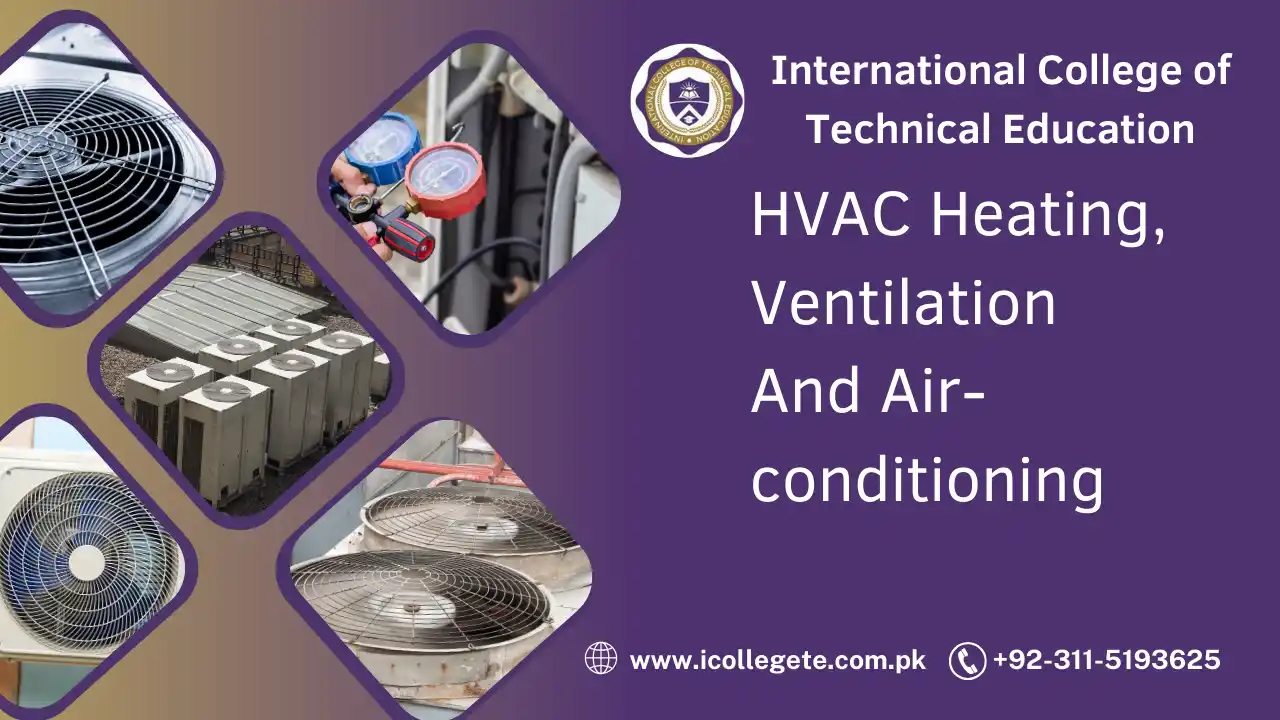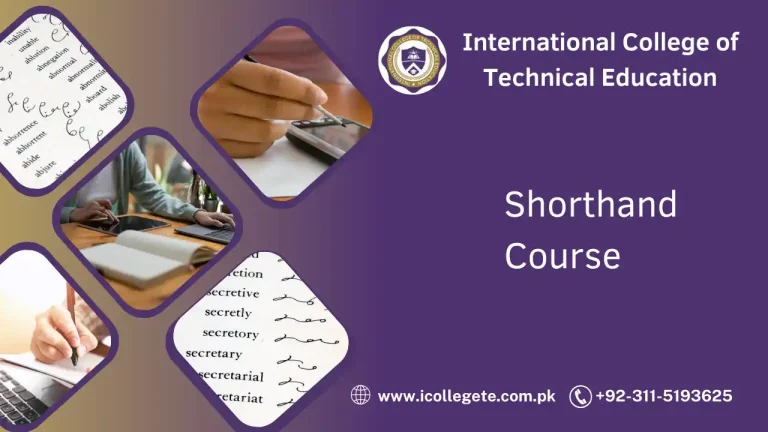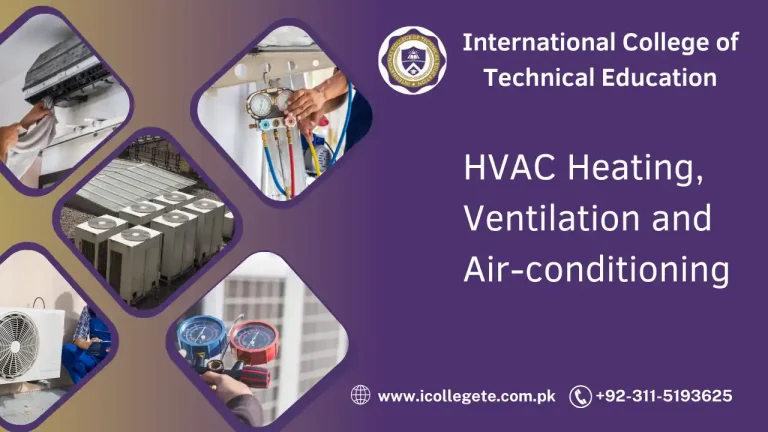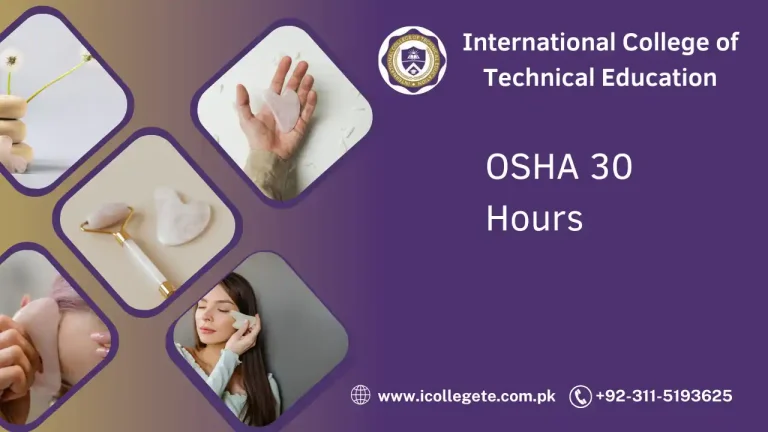As the world becomes more focused on energy efficiency, climate control, and indoor air quality, the demand for skilled professionals in the HVAC (Heating, Ventilation, and Air Conditioning) industry continues to rise. Whether it’s for residential, commercial, or industrial buildings, HVAC systems are integral to maintaining comfortable and healthy living and working environments. The HVAC Heating, Ventilation, and Air-Conditioning Course in Lahore offers aspiring technicians the opportunity to gain the necessary knowledge and skills to excel in this essential field.
The HVAC Heating, Ventilation, and Air-Conditioning Course in Lahore is designed to provide students with comprehensive training in the installation, operation, maintenance, and repair of heating, ventilation, and air-conditioning systems. As HVAC systems are critical in modern-day buildings, this course equips students with the technical expertise required to work with advanced HVAC systems and become proficient in ensuring they function efficiently and effectively.
This course combines theoretical learning with practical hands-on experience, ensuring students gain the necessary skills for real-world applications. It is ideal for those who wish to enter the HVAC industry or for existing professionals looking to upgrade their skills in this growing field.
Course Overview
The HVAC course offers detailed instruction on the design, installation, maintenance, and troubleshooting of HVAC systems. Students will explore various components such as refrigeration systems, ductwork, air-handling units, heating systems, ventilation systems, and more. With an emphasis on both residential and commercial HVAC systems, this course ensures that graduates can handle a wide range of systems in diverse settings.
Throughout the course, students will learn about energy-efficient practices and sustainable solutions, which are increasingly vital in today’s environmentally-conscious world. They will also be trained to follow industry standards, adhere to safety protocols, and implement the latest technology in HVAC systems.
Study Units
The HVAC Heating, Ventilation, and Air-Conditioning Course typically includes the following study units:
- Introduction to HVAC Systems
A foundational module covering the basics of HVAC, its components, and how different systems (heating, ventilation, air conditioning) interact to create a comfortable indoor environment. - Principles of Thermodynamics
Understanding the basic principles of heat transfer, energy conversion, and how thermodynamics governs HVAC operations. This includes refrigeration cycles, heat pumps, and air conditioning processes. - Heating Systems
In-depth study of various heating systems, including furnaces, boilers, heat pumps, and electric heating. Students will learn the types of heating methods used in residential and commercial spaces and their applications. - Ventilation and Air Quality
Exploring different ventilation techniques, including natural and mechanical ventilation. This unit also covers the importance of indoor air quality, air filtration systems, and air movement control. - Air Conditioning Systems
Detailed study of air conditioning systems, including their components (compressors, condensers, evaporators) and types (centralized, split systems, and portable units). The module also covers cooling load calculations and system sizing. - Refrigeration and Refrigerants
An overview of refrigeration technology, refrigeration cycles, and types of refrigerants used in HVAC systems. This unit also focuses on environmental concerns, such as the impact of refrigerants on the ozone layer. - System Installation and Maintenance
Practical training on installing and maintaining HVAC systems, including the tools and techniques used for troubleshooting, repair, and system testing. - HVAC Control Systems
A study of the control systems used to monitor and adjust HVAC performance. This includes thermostats, sensors, and the integration of automated systems for smart building solutions. - Energy Efficiency and Green HVAC Solutions
Focusing on the importance of energy-efficient HVAC systems and sustainable practices. This module covers energy-saving technologies, eco-friendly refrigerants, and green building practices.
Learning Outcomes
Upon successful completion of the HVAC Heating, Ventilation, and Air-Conditioning Course, students will be able to:
- Understand the core principles of HVAC systems, including heating, ventilation, and air conditioning.
- Install, maintain, and repair various HVAC systems, including both residential and commercial units.
- Diagnose and troubleshoot common HVAC issues effectively.
- Apply thermodynamic principles in the design and operation of HVAC systems.
- Ensure HVAC systems operate efficiently, adhering to energy-saving practices and sustainability standards.
- Work with different types of refrigerants and understand their environmental impact.
- Use control systems for monitoring and optimizing HVAC performance.
- Implement safety protocols and industry regulations in HVAC operations.
Course Benefits
- Comprehensive Skill Development: The course covers all aspects of HVAC systems, ensuring graduates are well-rounded professionals capable of handling a variety of HVAC tasks.
- Growing Job Demand: With the increasing importance of climate control and energy efficiency, skilled HVAC technicians are in high demand. Completing this course opens up numerous career opportunities.
- High Earning Potential: HVAC professionals often earn competitive salaries, and the industry provides potential for career advancement and specialized certifications.
- Hands-on Training: The course emphasizes practical learning, giving students the chance to work with real HVAC systems and tools to gain valuable experience.
- Sustainability Focus: Students will gain knowledge of energy-efficient technologies, making them attractive candidates for companies focusing on green building and sustainable practices.
- Job Readiness: Upon completion, students will be job-ready, capable of handling installation, maintenance, and troubleshooting tasks in both residential and commercial settings.
Who Is This Course For?
The HVAC Heating, Ventilation, and Air-Conditioning Course is ideal for:
- Beginners: Individuals with no prior experience in HVAC or related fields who want to pursue a career in the HVAC industry.
- Existing Technicians: Professionals in fields such as electrical work, plumbing, or construction who want to specialize in HVAC systems.
- Building Contractors: Professionals involved in the construction and design of buildings who want to expand their knowledge of HVAC systems and energy-efficient building solutions.
- Entrepreneurs: Individuals interested in starting their own HVAC service company, offering installation, maintenance, and repair services.
- Environmental Enthusiasts: Those interested in pursuing a career in sustainable, energy-efficient technologies, including green building solutions.
Future Progression
Final Thoughts
Upon completing the HVAC Heating, Ventilation, and Air-Conditioning Course, students can explore several career paths and educational opportunities:
- Certification and Licensing: Obtaining certification from reputable organizations, such as the North American Technician Excellence (NATE), can enhance job prospects and credibility.
- Specialization: HVAC technicians can choose to specialize in particular areas, such as commercial HVAC systems, refrigeration, or energy-efficient solutions, for further career advancement.
- Higher Education: Pursuing further studies in HVAC design, building systems, or renewable energy technologies can lead to higher-level positions in system design or project management.
- Entrepreneurship: Graduates can start their own HVAC businesses, providing services to residential, commercial, or industrial clients.
- Advanced Roles: With experience, HVAC professionals can move into supervisory roles, overseeing installation teams, managing large-scale HVAC projects, or working in technical support or consulting.
The HVAC Heating, Ventilation, and Air-Conditioning Course in Lahore offers an excellent foundation for a rewarding career in one of the most essential and dynamic industries today. As demand for skilled HVAC technicians grows with increasing attention on energy efficiency and sustainability, this course provides students with the expertise needed to succeed in the field. Whether you’re starting your career, upgrading your skills, or aiming for entrepreneurial success, the HVAC industry offers a wide range of opportunities for professional growth.
For more information on course details, fees, and enrollment, feel free to contact us. We’re here to help you take the first step toward a successful career in HVAC.






